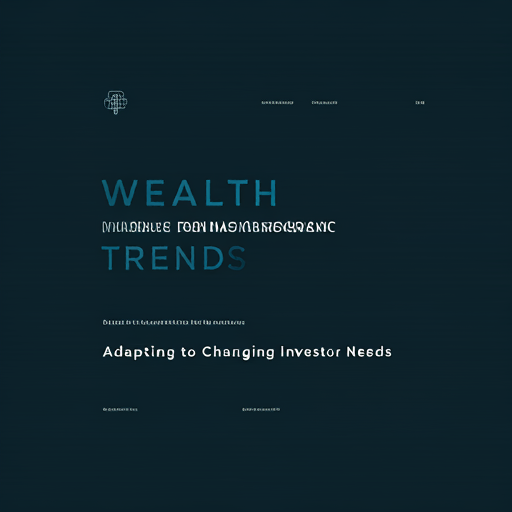The Rise of Digital Wallets: Revolutionizing Payments
Definition and Functionality
Digital wallets are electronic applications that store payment information. They enable users to make transactions using their smartphones or computers. This technology simplifies the payment process. Many people appreciate convenience in their daily lives. Users can link their bank accounts or credit cards to these wallets. It’s a seamless way to manage finances. Security features often include encryption and biometric authentication. Trust is essential in financial transactions. Digital wallets also support loyalty programs and rewards. Who doesn’t love earning points?
Types of Digital Wallets
There are several types of digital wallets available today. Some are designed for specific platforms, like mobile apps. Others function as web-based services. Each type offers unique features. Users can choose based on their needs. Convenience is key in modern transactions. Some wallets focus on cryptocurrency support. This is an exciting area. Others prioritize traditional payment methods. Security remains a top concern. Always consider safety first.
Historical Context and Evolution
Digital wallets have evolved significantly since their inception. Initially, they emerged as simple online payment systems. Over time, they incorporated advanced security features. This evolution reflects growing consumer demand for convenience. Many users appreciate the speed of transactions. In the early 2o00s, mobile wallets began to gain traction. This shift marked a pivotal moment in payment technology. Today, digital wallets integrate with various financial services. Innovation drives this ongoing transformation. The future looks promising.
Benefits of Using Digital Wallets
Convenience and Accessibility
Digital wallets offer significant convenience and accessibility for users. They streamline transactions by allowing instant payments. This efficiency reduces the time spent on financial activities. Many individuals value quick access to funds. Furthermore, digital wallets can store multiple payment methods. This feature enhances user flexibility in managing finances. Security measures, such as encryption, protect sensitive information. Trust is crucial in financial transactions. Overall, these wallets facilitate seamless integration with various platforms. It’s a modern solution for everyday needs.
Enhanced Security Features
Digital wallets incorporate advanced security features to protect user data. These include encryption and two-factor authentication. Such measures significantly reduce the risk of fraud. Many users feel safer with these protections in place. Additionally, biometric verification adds another layer of security. This technology is becoming increasingly popular. Users can trust that their financial information is secure. Security is paramount in digital transactions.
Cost-Effectiveness for Users
Digital wallets provide cost-effectiveness through reduced transaction fees. Users often benefit from lower charges compared to traditional banking. This can lead to significant savings over time. Additionally, many digital wallets offer rewards programs. These programs incentivize frequent use, enhancing overall value.
Key benefits include:
Users can maximize their financial efficiency. It’s a smart choice for budget-conscious individuals.
Impact on Traditional Banking Systems
Disruption of Conventional Payment Methods
Digital wallets are disrupting conventional payment methods significantly. They challenge the traditional banking model by offering faster transactions. This shift reduces reliance on physical banks. Many consumers prefer the convenience of digital solutions. Additionally, digital wallets often provide lower fees. This is appealing to cost-conscious users. As a result, banks must adapt to remain competitive. Change is essential in the financial landscape.
Collaboration Between Banks and Wallet Providers
Collaboration between banks and wallet providers is increasingly usual. This partnership enhances service offerings for consumers . By integrating digital wallets, banks can attract tech-savvy clients. Many users appreciate the convenience of combined services. Additionally, this collaboration can lead to improved security measures. Trust is vital in financial transactions.
Key benefits include:
Such alliances are reshaping the financial landscape. Adaptation is crucial for future success.
Future of Banking with Digital Wallets
The future of banking will increasingly involve digital wallets. These tools streamline transactions and enhance user engagement. As technology advances, banks must adapt to remain relevant. Many consumers prefer the efficiency of digital solutions. This shift may lead to reduced physical branch usage. Convenience is a significant factor for users.
Potential developments include:
Such innovations will redefine banking experiences. Change is inevitable in this landscape.
Cryptocurrency Integration in Digital Wallets
How Digital Wallets Support Cryptocurrencies
Digital wallets facilitate the use of cryptocurrencies effectively. They allow users to store, send, and receive various digital assets. This integration simplifies transactions for cryptocurrency holders. Many wallets support multiple cryptocurrencies simultaneously.
Key features include:
Such capabilities attract a growing user base. Convenience is essential in financial technology.
Challenges of Cryptocurrency Wallets
Cryptocurrency wallets face several
Future Trends in Crypto Wallet Technology
The integration of cryptocurrency into digital wallets is rapidly evolving. This trend enhances user convenience and security. As more consumers adopt cryptocurrencies, digital wallets are becoming essential financial tools. They streamline transactions and provide a seamless experience. The rise of decentralized finance (DeFi) further emphasizes this shift. It’s an exciting development in finance. Users can manage muotiple assets in unity place. This consolidation simplifies portfolio management. The future looks promising for crypto wallet technology. Are you ready to embrace it?
Regulatory Landscape for Digital Wallets
Current Regulations and Compliance Issues
The regulatory landscape for digital wallets is complex and evolving. Governments are increasingly focusing on compliance to protect consumers. This scrutiny aims to prevent fraud and money laundering. Regulations vary significantly across jurisdictions. Understanding these differences is crucial for users. Compliance can be challenging but necessary. It ensures a safer environment for transactions. Stay informed about changes. Knowledge is power.
Impact of Regulations on Adoption
Regulations significantly influence the adoption of digital wallets. Stricter compliance requirements can deter potential users. This hesitance often stems from concerns about security and privacy. Additionally, varying regulations across regions create confusion. Users may feel uncertain about legal implications. Clear guidelines can foster trust and encourage usage. Understanding these regulations is essential for informed decisions. Knowledge empowers users.
Future Regulatory Trends
The regulatory landscape for digital wallets is fvolving rapidly, driven by the need for enhanced consumer protection and financial stability. As governments worldwide implement stricter compliance measures, digital wallet providers must adapt to new frameworks. This shift aims to mitigate risks associated with fraud and money laundering. Compliance is crucial for maintaining trust. Regulatory bodies are increasingly focusing on data privacy and cybersecurity standards. These measures are essential for safeguarding user information. The implications for businesses are significant. Adapting to these changes can be challenging. Stay informed to navigate these complexities.
Case Studies of Successful Digital Wallets
Leading Digital Wallet Providers
Digital wallets have revolutionized financial transactions, offering convenience and security. For instance, a prominent provider has successfully integrated biometric authentication, enhancing user trust. This innovation significantly reduces fraud risk. Trust is essential in finance. Another case highlights a digital wallet that leverages blockchain technology for transparent transactions. This approach fosters greater accountability among users. Transparency builds confidence. Furthermore, a leading provider has expanded its services to include peer-to-peer payments, catering to a growing demand for seamless money transfers. Seamless transactions are vital today. These case studies illustrate the dynamic evolution of digital wallets in the financial landscape. Evolution is key to success.
Innovative Features and User Experiences
Successful digital wallets incorporate innovative features that enhance user experience. For example, one wallet utilizes AI-driven analytics to personalize financial insights. This customization improves user engagement significantly. Personalization matters in finance. Another case showcases a wallet that integrates loyalty programs, allowing users to earn rewards seamlessly. This feature encourages frequent usage and customer retention. Retention is crucial for growth. Additionally, some wallets offer real-time transaction notifications, ensuring users remain informed about their spending. Awareness fosters better financial habits. These advancements illustrate the importance of user-centric design in digital wallets. Design impacts user satisfaction.
Lessons Learned from Market Leaders
Market leaders in digital wallets demonstrate key strategies for success. For instance, one provider emphasizes user education to enhance financial literacy. This approach fosters informed decision-making among users. Another case reveals the importance of robust security measures, which build consumer trust. Additionally, effective customer support systems are crucial for addressing user concerns promptly. Prompt support enhances satisfaction. These lessons highlight the significance of user-centric strategies in the digital wallet landscape. User focus drives innovation.
Conclusion: The Future of Digital Wallets
Predictions for Market Growth
The digital wallet market is poised for significant growth, driven by increasing consumer adoption and technological advancements. As to a greater extent users embrace contactless payments, the demand for secure digital solutions will rise. Security is a top priority. Furthermore, the integration of artificial intelligence will enhance personalization , allowing for tailored financial experiences. Personalization improves user engagement. Additionally, regulatory developments will shape the landscape, promoting innovation while ensuring consumer protection. Regulation is essential for trust. These factors collectively indicate a robust future for digital wallets in the financial ecosystem.
Potential Challenges Ahead
Digital wallets face several potential challenges that could hinder their growth. For instance, cybersecurity threats remain a significant concern, as breaches can undermine user trust. Trust is crucial in finance. Additionally, regulatory compliance may become increasingly complex, requiring providers to adapt swiftly. Adaptation is necessary for survival. Furthermore, competition from traditional banking institutions could intensify, as they enhance their digital offerings. Competition drives innovation. These challenges necessitate strategic planning to ensure long-term viability in the market. Planning is essential for success.
Final Thoughts on Digital Payment Revolution
The digital payment revolution is reshaping financial transactions significantly. Key factors driving this change include enhanced security measures, user-friendly interfaces, and integration with emerging technologies. These elements foster greater consumer confidence. Confidence is vital for adoption. Additionally, the rise of e-commerce has accelerated the demand for efficient payment solutions. Efficiency is essential today. As digital wallets evolve, they will likely incorporate advanced features such ac biometric authentication and AI-driven insights. Innovation is crucial for growth. Overall, the landscape is poised for transformative advancements in the coming years. Change is inevitable.









